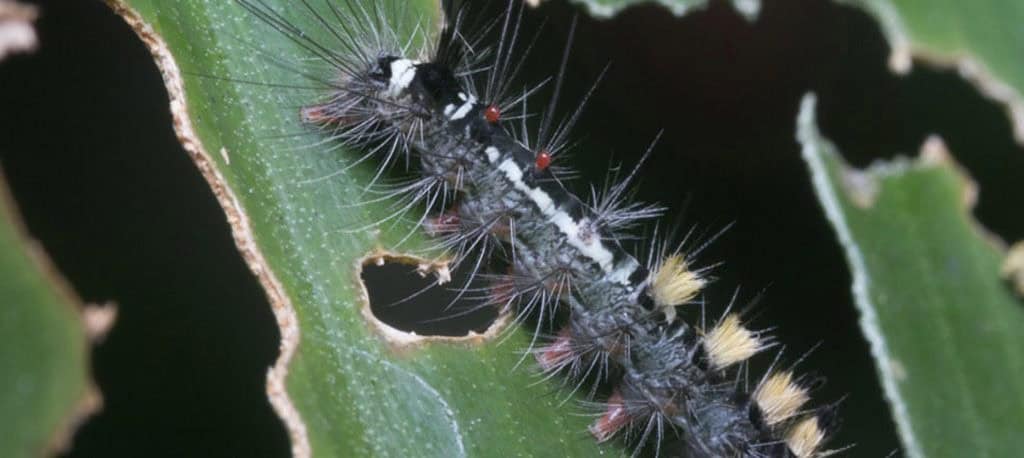Tree-killing pests kept in check thanks to air assault two years ago in Mississauga
Published April 30, 2024 at 4:02 pm

An aggressive assault from the air two years ago against an army of invasive, leaf-eating insects that posed a threat to Mississauga’s tree population seems to have done the job — at least for the time being.
The leaf-munching caterpillars known as “spongy moths,” which left unchecked can kill trees at an alarming rate, are not expected to be a serious problem this summer in the city, according to Mississauga officials charged with keeping the 2024 tree pest population in check.
The same was true last summer as an aerial spray program in 2022 that targeted specific pockets of the city using helicopters seems to have been successful.
“An aerial spray is not required in 2024 based on a low population (of spongy moths) that is forecast below the threshold for concern across Mississauga,” City of Mississauga officials said in an online update this week. “The anticipated levels of defoliation are not expected to have a significant negative impact on trees and forest health.
“Controlling spongy moth populations is essential in making sure our trees continue to stay healthy for everyone to enjoy,” they continued. “The city monitors and controls spongy moth populations. Each year, priority areas are identified where there are high numbers of the insect.”
In the ongoing battle against the pest, city officials also ask residents to report any spongy moth sightings.
Known as the “gypsy moth” until a year or so ago, the “spongy moth” — formally called Lymantria dispar — has been an unwelcome presence in Mississauga for years. It has, at times, presented a serious threat to the tree canopy in several parts of the city as it eats oak trees and other hardwood species.
The 2022 spray program, in which low-flying helicopters sprayed certain areas of the city over a several-week period during the spring, protected hardwood trees like maple, oak, elm, ash, poplar, willow and birch.
Prior to 2022, the city spray-bombed areas in 2018, which helped slow the “spongy moth” population for about two years. But the tree-munching pest returned in force in Mississauga and across southern Ontario.
Native to Europe, the “spongy moth” was introduced to North America several decades ago. The caterpillars eat leaves from trees during the spring and early summer.
While healthy trees can grow back their leaves in the same season, an ongoing infestation weakens trees and can make them more likely to be damaged from other insects as well.
INsauga's Editorial Standards and Policies








